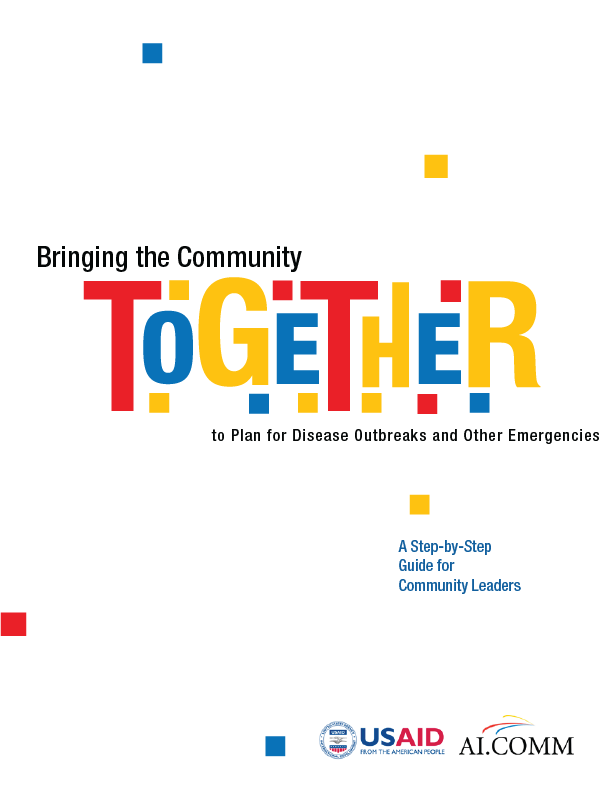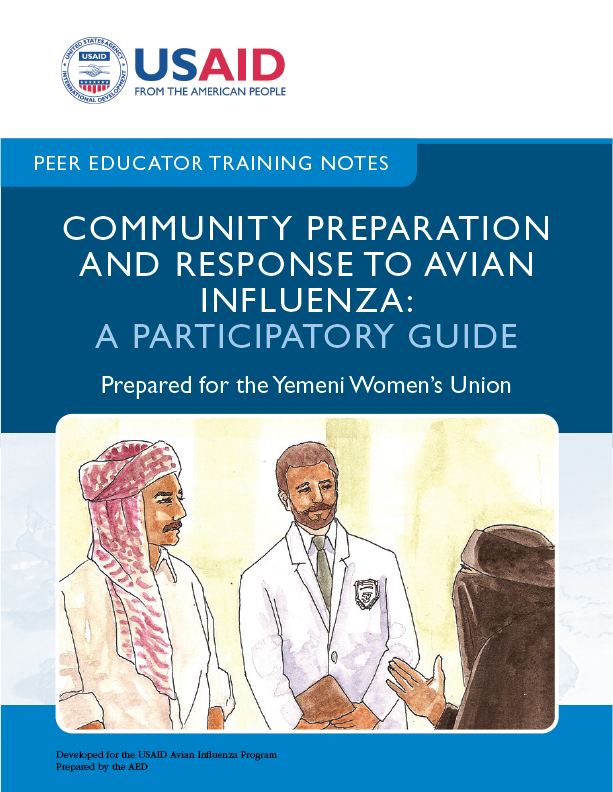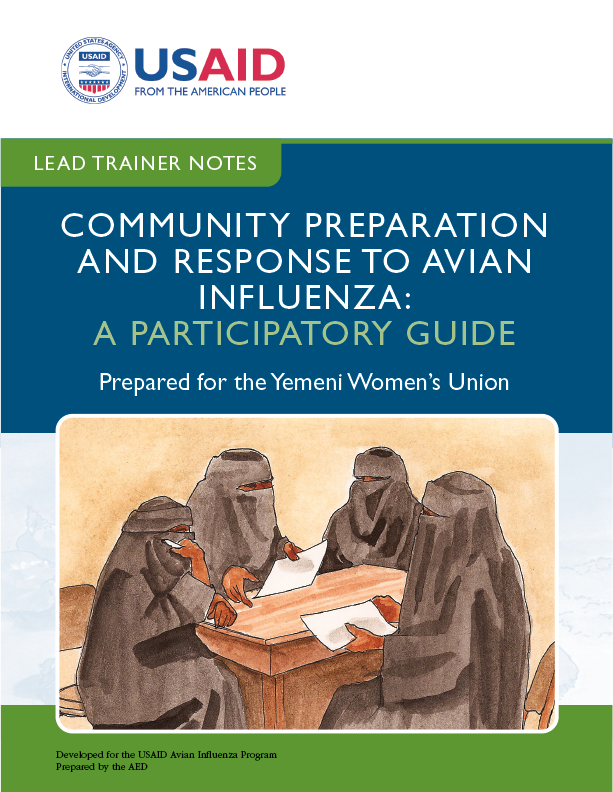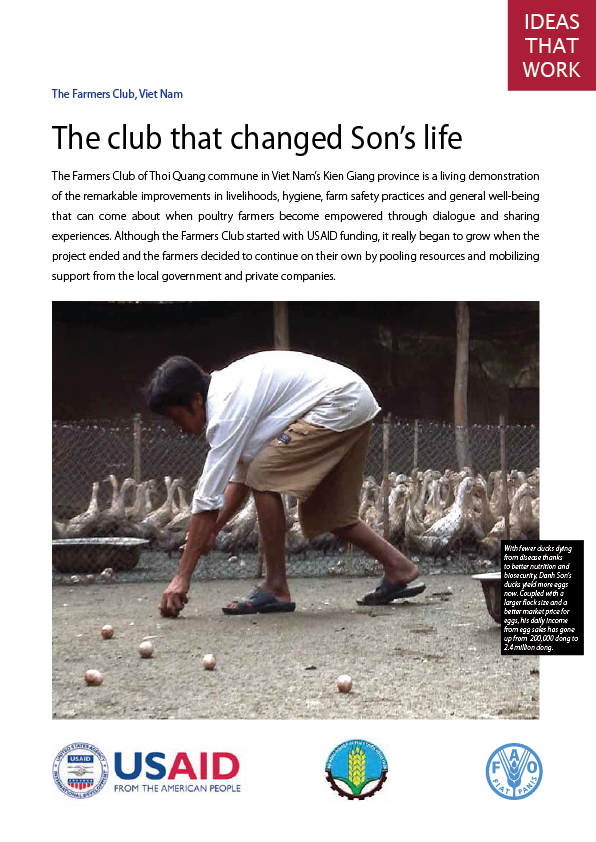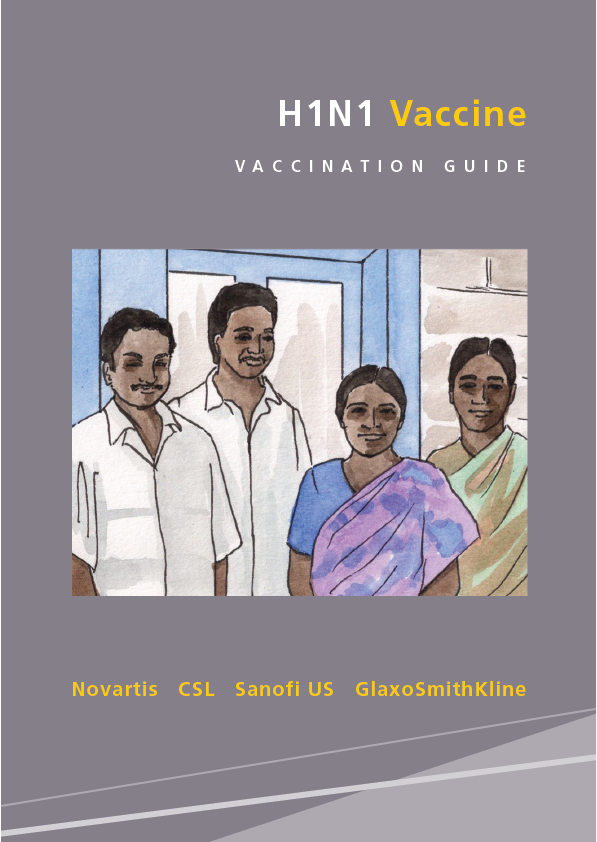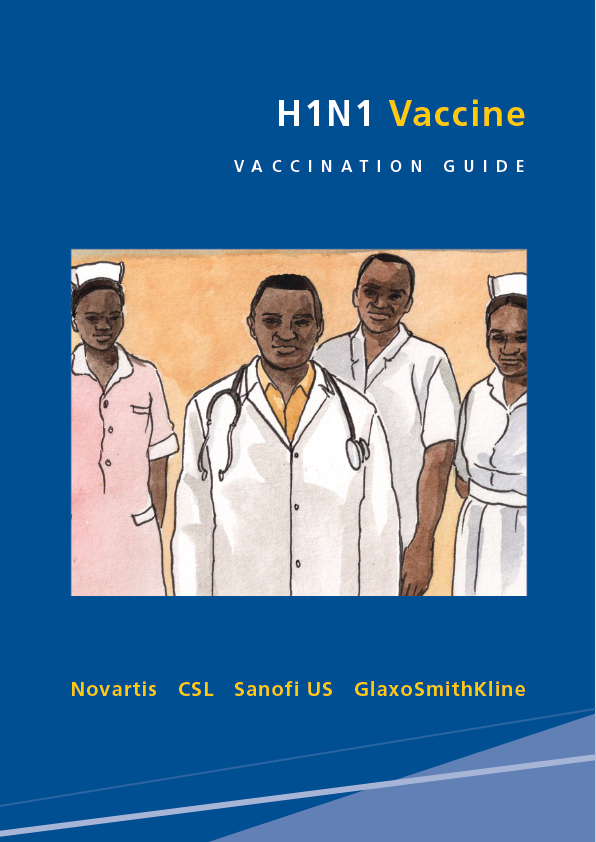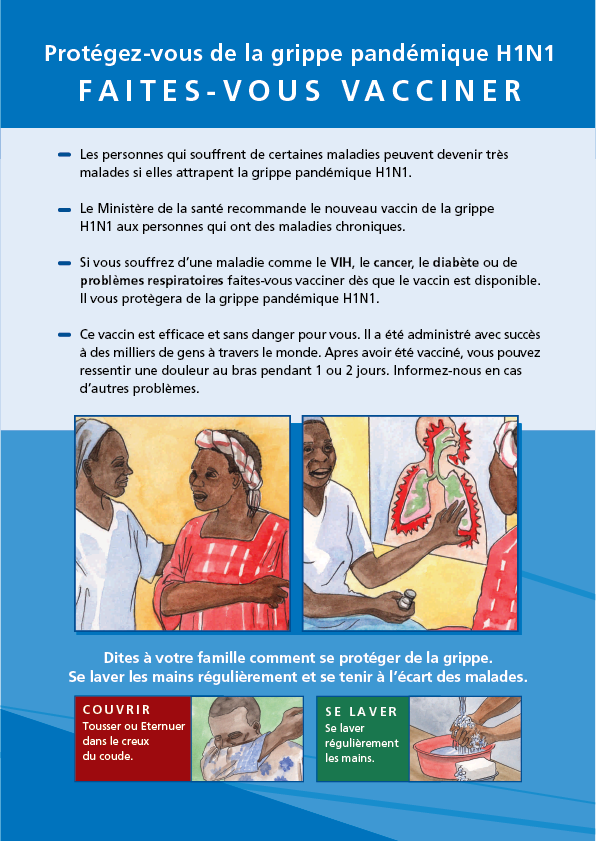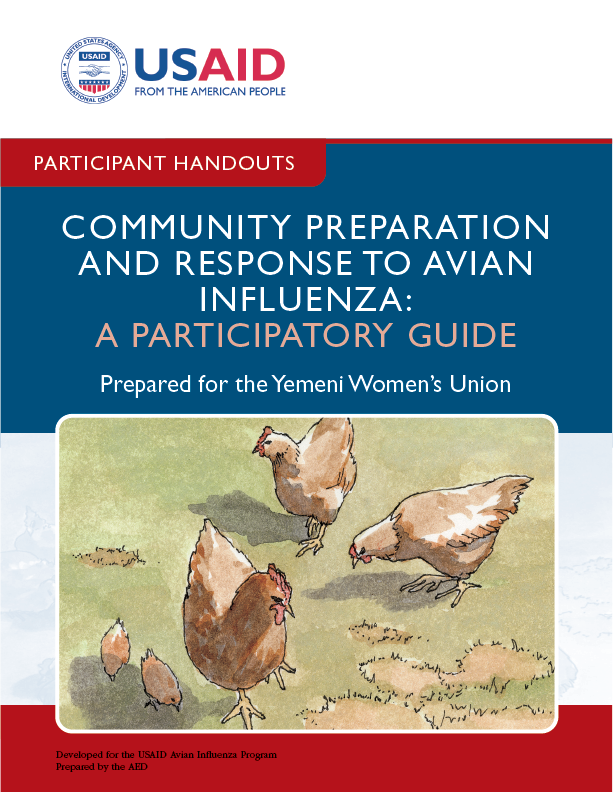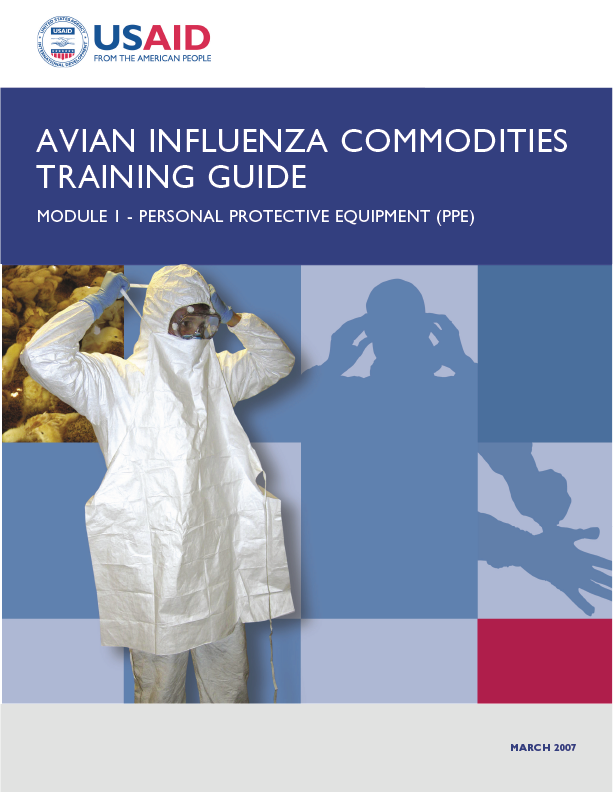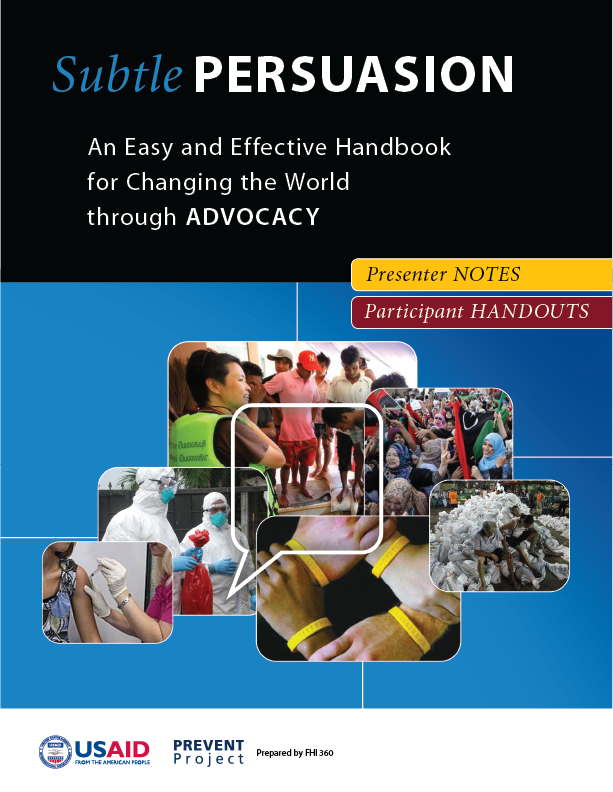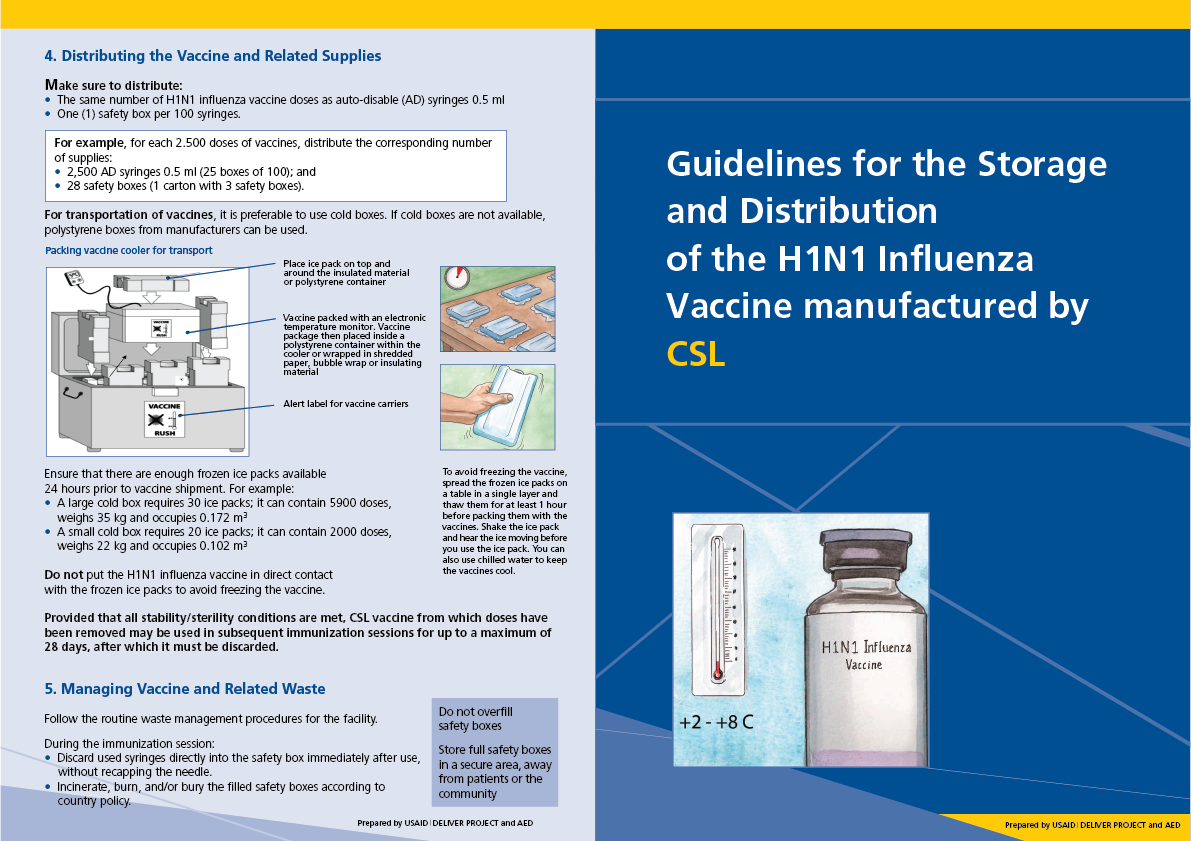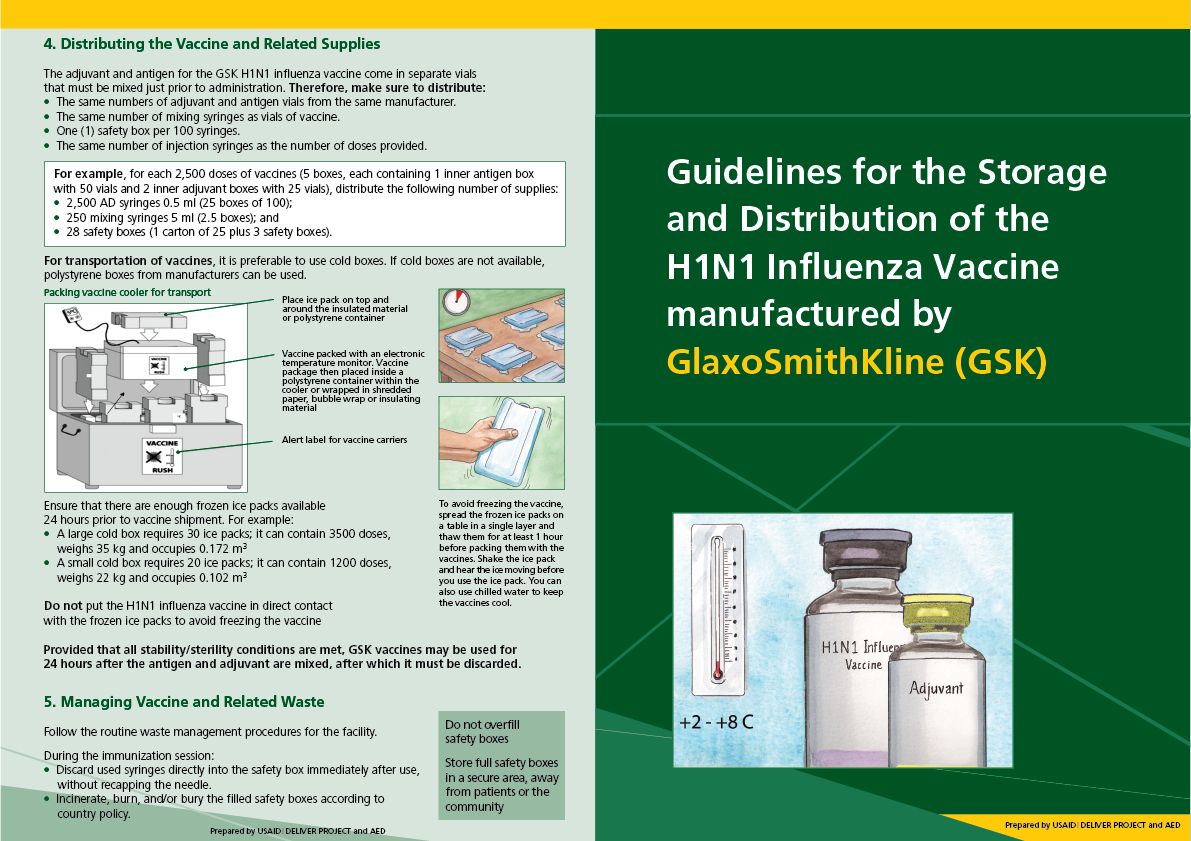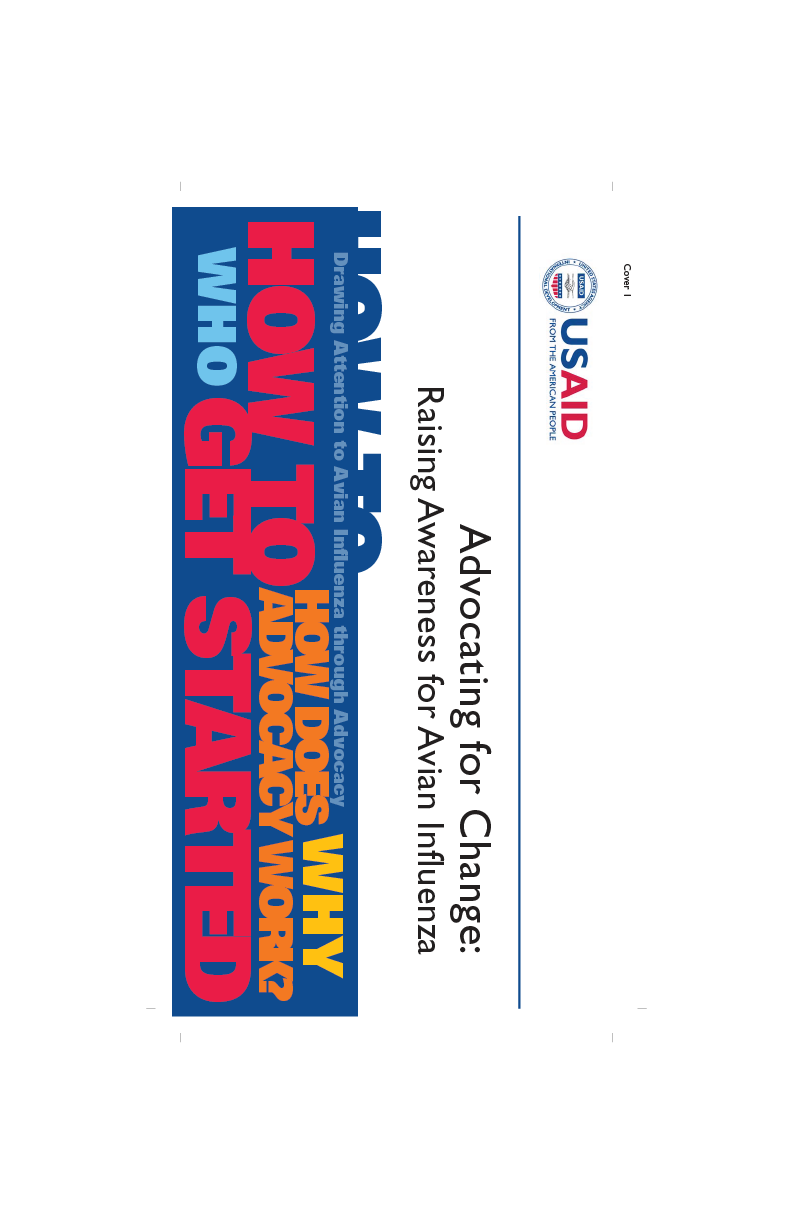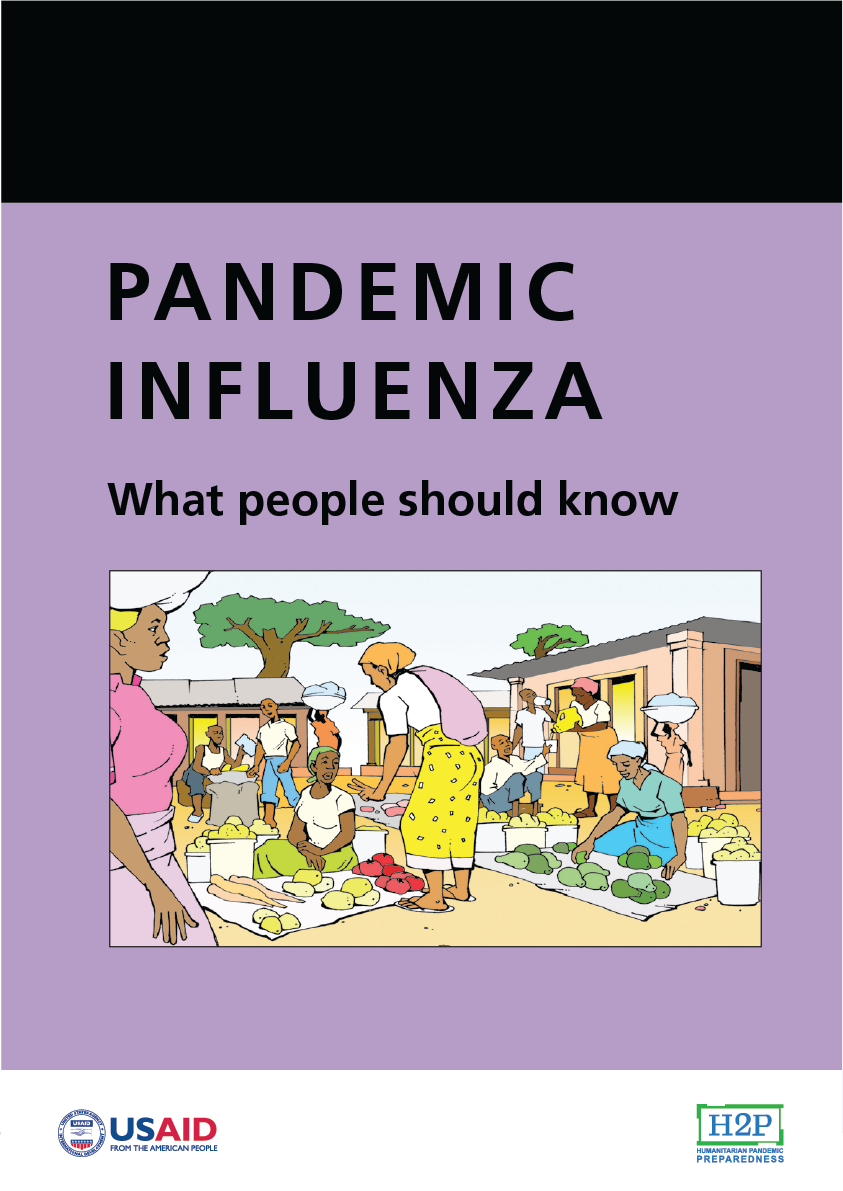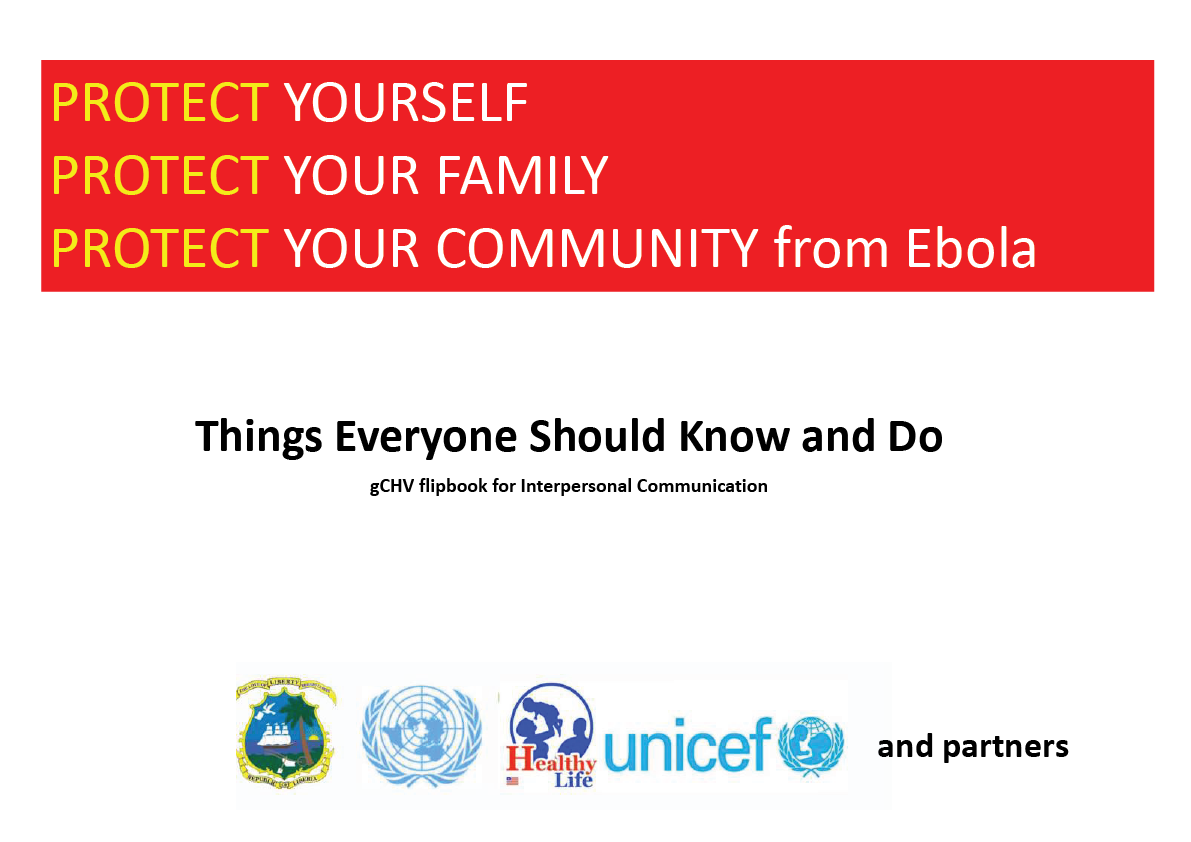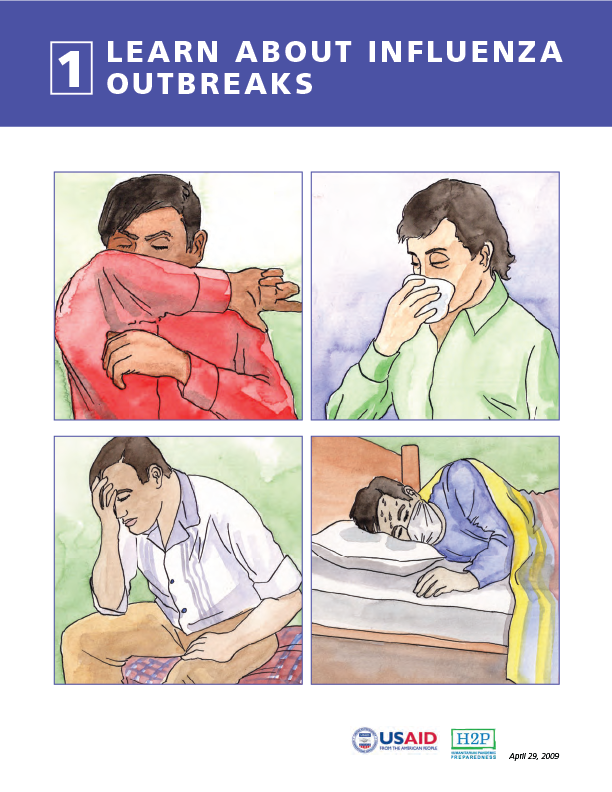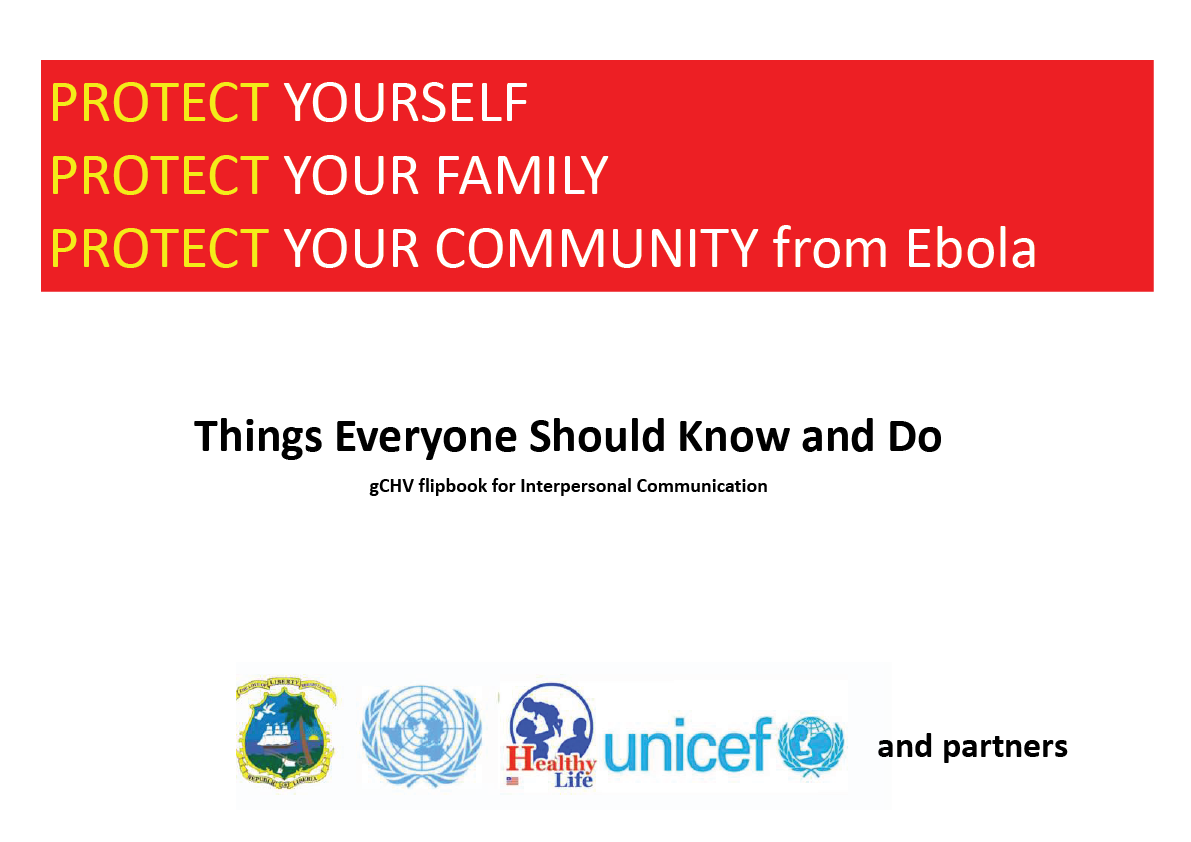Resources for Pandemic Infection Prevention and Response
In 2005 with the initial outbreaks of H5N1 virus (avian influenza) in Southeast Asia, USAID became the manager of the funding allocated to address the security and health threat to the United States from the virus. A US Government interagency task force originating out of the White House with Department of State, Defense, and Agriculture as well as CDC, HHS, and USAID was organized with representatives from the animal and human health sectors as well as security and the environment. It expanded to include UN Agencies, FAO, WHO, IOE, UNICEF and key government contractors, and the “One Health” initiative which recognizes that human viruses generally originate from zoonotic diseases were institutionalized.
The now-defunct AED was selected by USAID to handle the Social and Behavior Change for both prevention and the response to the H5N1 virus. A talented team of experts in SBC, epidemiologists, veterinarians, crisis managers, researchers, and designers and illustrators headquartered in Washington, DC and SE Asia began to design the response to H5N1
Much of what was accomplished under H5N1 virus was adapted globally when H1N1 2009 pandemic influenza was introduced and began to spread. The key behavioral instructions of hygiene – “wash your hands” – and separation – “social distancing” – could be applied to H1N1 2009 pandemic influenza and as we now know any infectious disease.
Ebola soon followed in West Africa in 2015 and much like what happened with HIV the stigma of having the virus or being close to the virus became an issue.
Now with COVID-19 what we have learned can still be applied.
Since AED is no more and the talented team that put these materials together and implemented or adapted them to fit the culture and country where the viruses were are scattered, we are posting them as a reservoir to borrow from or adapt.
There are other virus’ and threats to come.
Let’s try not to have to relearn what we already know and have seen work.
Media Orientation and Crisis Communications Management
An Orientation Workshop for the Media - Reporting on Pandemic Influenza
Outbreak Response and Communication Guide
Risk Communication Planning and Action Guide
Risk Communication Workshop Series II
Risk Communications and Crisis Management
An Orientation Workshop for the Media - Reporting on Pandemic Influenza
Emergency Risk Communication - Avian Influenza
Outbreak Response and Communication Guide
Risk Communication Planning and Action Guide
Risk Communication Workshop Series II
Training and Capacity Building
IPC, Peer Education, Applied Communication, Vax guide
Interpersonal Communication Skills for Avian Influenza - Training of Trainers, Facilitator Manual
Interpersonal Communication Skills for Avian Influenza, Participant Handouts
Back of the Jeep Guide - Half Day Training for Novel H1N1 Influenza
Field Epidemiology Training Program, Curriculum Handouts
Field Epidemiology Training Program, Summary
Community Preparation and Response to Avian Influenza, Malawi Peer Educator Training Notes
Community Preparation and Response to Avian Influenza (Yemen), Lead Trainer Notes
Community Preparation and Response to Avian Influenza (Yemen), Participant Handouts
Job Aids, Flipcharts, Cue Cards, Pamphlets
Avian Influenza (H5N1): A Guide for People Who Supervise Poultry Vaccination
Let’s Prevent AI and Other Poultry Diseases (English)
Learn About the Flu - Cue Cards
Pandemic Influenza: What People Should Know
gCHV Guide to Interpersonal Communication in the Ebola Response
Learn about Influenza - Counseling Cards
Learn About the Flu - Counseling Cards (Burmese)
Learn about the Flu - Flipchart (Burmese)
H1N1 Vaccination Guide booklet
H1N1 Vaccination Guide booklet
Dengue Fever - Counseling Cards
Counseling Cards, Malaria (Burmese)
PI Counseling Cards, Malaria (Burmese)
One Health and Towards a Safer World
Presentation - Social and Behavior Change Issues in Implementation of World Health
Beyond Pandemics: A Whole-of-Society Approach to Disaster Preparedness
H5N1, Egypt FAO
Behavior Change and Communication Strategic Framework
Assessment Report, Behavior Change Communication
Behavior Change Communication Strategy for Egypt
Implementation Plan, Behavior Change Communication
Hotline
Avian Influenza Hotline Protocol - Facilitator’s Training Manual and Training of Trainer’s Module
Avian Influenza Hotline Protocol - Operator’s Training Manual
Advocacy
Advocating for Change: Raising Awareness for Avian Influenza



